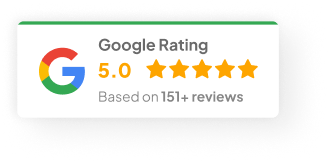08 Jul 25
WordPress Outsourcing Services: White Label vs. Traditional Agency Set-Up
There’s a lot of noise in the digital space right now. More tools, tighter deadlines, clients expecting five-star design with two-star budgets. So if you’re running a business or agency, building every site in-house just doesn’t make sense anymore.
That’s where WordPress outsourcing comes in. Done right, it helps you scale without the stress. But before you dive in, you’ll need to choose between white label services or a traditional WordPress agency setup.
Both models work. But they’re built for different kinds of needs. And if you pick the wrong one? You’ll feel it in blown budgets, client friction, and missed deadlines.
Let’s break it down properly.
What Are White Label WordPress Outsourcing Services?
White label is a bit like having a secret weapon. A third-party dev team builds the WordPress site, but everything—emails, updates, deliverables—looks like it came from your agency. Your client never sees the outside crew. You stay front-facing. They stay in the shadows.
This is popular for good reason. It’s quick, flexible, and lets you take on more work without burning your team out.
Who’s it best for?
- Freelancers or micro-agencies juggling multiple clients
- Mid-sized agencies trying to scale without adding headcount
- Businesses focused on brand control and tight delivery
Pros:
- Scalable, low-commitment: No need to bring on a full-time dev. Just plug in when you’ve got a project—then unplug when you don’t.
- Your brand, always: Emails, handovers, final product—it all comes from you. The client never sees the team behind the curtain.
- Flexibility: Whether it’s one landing page or ten full sites, you can scale up or down without stress.
- Saves Time: Focus on managing strategy and clients—leave the code to people who live and breathe WordPress.
How Does White Label WordPress Outsourcing Actually Work?
It’s usually pretty streamlined, especially if you’re working with a well-oiled team.
Here’s the usual process:
- Client request comes in: You talk to the client, scope the project, and prepare a quote—all under your own brand.
- You brief your white label partner: Once approved, you hand over the specs—site structure, brand guidelines, content, and timeline.
- Design and dev kick off: The partner starts building. Some offer you access to a branded portal or dashboard where you can leave notes and track progress.
- Review and revisions: You collect client feedback, relay it to the partner, and get updates.
- Final delivery: Once it’s all good, you deliver the site to your client. Your partner stays invisible. You take the credit.
This works best when your core strength is strategy, content, or client management—but you don’t want to (or can’t) manage full-time developers in-house.
What Is a Traditional WordPress Agency Set-Up?
Now flip it. A traditional agency setup is where the whole job—discovery to launch—is handled by a dedicated team of designers, developers, project managers, maybe even SEO specialists. You’re not managing anyone. You’re collaborating with them.
They’re your build team, not your backend partner.
Who it’s right for:
- Medium to large businesses with a serious digital presence
- Brands needing complex or custom functionality
- Projects involving integrated SEO, performance, UX strategy, and post-launch support
Key advantages:
- Full-Service Expertise: You’re not coordinating five freelancers. You’ve got one team across the whole stack—design, code, SEO, testing, even analytics.
- Custom Development: They build for your needs. Advanced integrations? API work? Conditional content? No problem.
- Strategic Collaboration: Traditional agencies will usually guide you, not just build for you. Expect UX wireframes, content audits, conversion advice.
- Long-Term Support: You get access to retainers, training, monthly reports—whatever helps after go-live.
Cost Comparison: White Label vs Traditional Agency
Let’s talk numbers. Cost isn’t just about price—it’s about scope, flexibility, and what you’re actually getting.
White Label Services:
- Pricing: Usually project-based or hourly
- Cost Range: $500 to $2,000+ per site
- Inclusions:
- Standard WordPress builds
- Theme-based or lightweight customisation
- Development based on a provided design or layout
This is ideal for clients with simple briefs and fast turnarounds. Want clean work without stretching your budget? This hits the mark.
Traditional WordPress Agencies:
- Pricing: Usually a flat fee or monthly retainer
- Cost Range: $3,000 to $15,000+, depending on complexity
- Inclusions:
- Custom UI/UX design
- Built-from-scratch development
- Conversion strategy, SEO, analytics
- Integrations (CRMs, ERPs, payment systems, etc.)
- Ongoing support
These are higher-ticket projects, yes. But they’re built for scale, performance, and polish—especially if you’re targeting growth.
Use Cases That Make Sense
White Label in Action:
- A marketing agency wants to add web design to their services, but doesn’t want the headache of hiring developers.
- A freelance consultant offers full website packages but uses a white label dev partner behind the scenes to execute builds efficiently.
Traditional Agency in Action:
- A SaaS startup needs a fully custom site built with subscription logic, analytics, and third-party integrations.
- A brand undergoing a rebrand needs a new website aligned with updated tone, visuals, content hierarchy, and lead funnels.
Checklist: What to Ask Before Choosing
When you’re choosing between models, ask these questions. It’ll save you time and (probably) money:
- What’s the project budget? Can we afford a full-service build or do we need a leaner option?
- Do we want to manage clients only, or be hands-on with a dev team?
- Is our branding non-negotiable? Or are we okay sharing the spotlight?
- Do we have internal resources to support post-launch?
- Are we working on a one-off project or a long-term build?
- Do we need fast turnaround or deep strategic input?
Red Flags to Watch Out For
Whichever model you go with, a few things can tank your project faster than you’d expect.
- Slow updates: Silence or vague replies? Makes you look unprofessional, even if the delay’s not on your end.
- No QA process: Bugs show up post-launch, and you’re the one stuck explaining them to the client.
- Missing contracts: No NDA, no IP agreement? That’s a risk—not just for you, but for your client too.
- Scope creep: If deliverables aren’t crystal clear, expect endless back-and-forth over what’s “included.”
- Overpromising: “Page 1 on Google” with zero SEO strategy behind it? Yeah, no.
- Too rigid: Some teams won’t budge without a new scope doc. Even for tiny changes. Slows everything down.
Which Should You Choose?
Here’s the quick summary—without fluff:
Go with White Label if:
- You need to scale fast without adding staff
- Your client base expects quick, clean, branded delivery
- The projects are straightforward (no complex functionality or integrations)
Go with a Traditional Agency if:
- You’re building something custom, complex, or high-value
- Strategy, SEO, UX, and long-term support are non-negotiable
- You want a done-for-you solution where you’re not managing the process
Which Should You Choose?
Still unsure? Here’s a quick side-by-side to help:
|
Choose White Label If… |
Choose Traditional Agency If… |
|
You want to expand services without hiring more staff |
You need a custom solution with strategic input |
|
Branding consistency is important |
You want an experienced, full-service team |
|
You prefer a more affordable, flexible model |
You have a larger budget and long-term goals |
|
You’re a freelancer or small agency managing multiple clients |
You’re a growing business needing continuous support |
Wrap Up
White label or traditional agency? It really comes down to what you need—but if you’re looking for a specialised team that lives and breathes high-converting WordPress websites, that’s exactly what we do at Chromatix.
We don’t just build websites—we craft digital experiences that actually convert. With over a decade focused solely on WordPress, we bring deep strategy, custom design, and development expertise to every project. No cookie-cutter builds. No shortcuts.
So if you’re after a hands-on, results-driven web design partner, not just another agency, call us.


